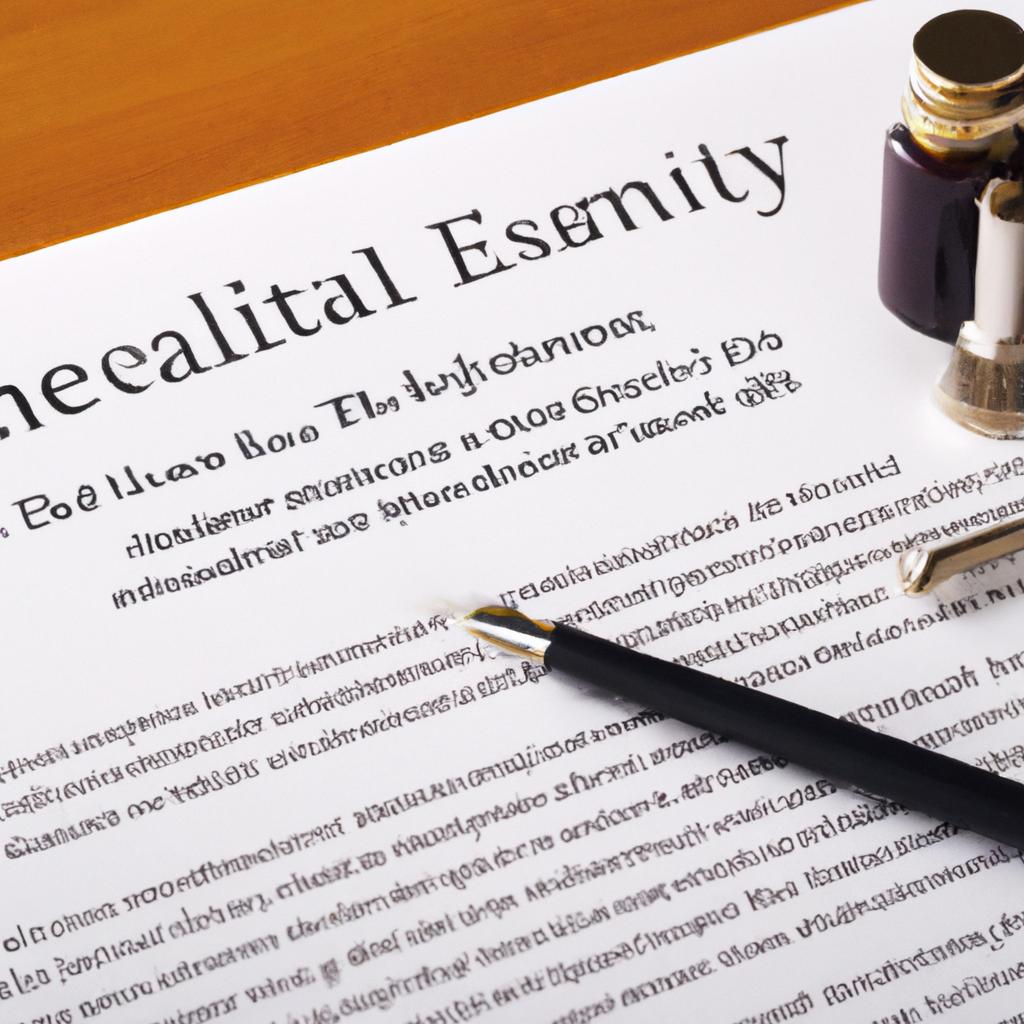Ensuring that your assets are protected and distributed according to your wishes is a paramount concern for any individual. At Morgan Legal Group, located in the heart of New York City, our experienced team specializes in estate planning, probate, elder law, Wills, and trusts. In this article, we will guide you through the essential steps in setting up a will and trust, providing you with the knowledge and tools necessary to secure your legacy for generations to come. Let us help you navigate the complexities of estate planning with confidence and peace of mind.
Understanding the Importance of Establishing a Will and Trust
When it comes to estate planning, setting up a will and trust is crucial for ensuring that your assets are distributed according to your wishes. A will is a legal document that specifies who will inherit your property and assets after you pass away. On the other hand, a trust is a legal arrangement where a trustee holds and manages assets on behalf of beneficiaries. Below, we outline the key reasons why establishing a will and trust is essential:
- Asset Distribution: A will allows you to designate who will receive your assets, while a trust provides a way to pass on assets to beneficiaries without going through the probate process.
- Probate Avoidance: By putting assets into a trust, they can bypass probate court, which can be time-consuming and costly.
- Minor Children: A will is crucial for naming guardians for minor children in the event of your passing.
Overall, setting up a will and trust is essential for ensuring that your wishes are carried out after your passing. At Morgan Legal Group, our experienced estate planning attorneys can help you navigate the complexities of creating a will and trust that align with your goals and protect your assets for future generations. Contact us today for a consultation to discuss your estate planning needs.
| Benefits of Establishing a Will and Trust | Importance |
|---|---|
| Asset Distribution | Specify who inherits your assets |
| Probate Avoidance | Bypass time-consuming and costly probate court |
| Minor Children | Name guardians for minor children |

Key Considerations When Setting Up a Trust
When establishing a trust, there are several important factors to take into consideration to ensure that your wishes are carried out effectively. One key consideration is determining the type of trust that best suits your needs. Whether it be a revocable trust, irrevocable trust, or living trust, each type has its own unique benefits and limitations.
Another crucial consideration is selecting the right trustee to manage the trust assets. The trustee plays a vital role in overseeing the trust and ensuring that your instructions are followed accurately. It is important to choose someone who is trustworthy, reliable, and capable of fulfilling their fiduciary duties with diligence. Additionally, it is important to regularly review and update your trust documents as needed to reflect any changes in your circumstances or objectives.

Drafting a Comprehensive Will: Essential Components and Tips
Essential Components of a Comprehensive Will:
- Identification of the testator: Clearly state your full legal name and address.
- Appointment of executor: Designate a trustworthy individual to carry out your wishes.
- Beneficiaries: Clearly list who will inherit your assets and specify what each will receive.
- Guardianship: If you have minor children, name a guardian to care for them in the event of your passing.
- Debts and taxes: Address how your debts and taxes will be paid off.
Tips for Drafting a Will and Trust:
- Seek legal advice: Consulting with an experienced estate planning attorney can help ensure your will is legally sound.
- Be specific: Clearly outline your wishes to avoid ambiguity and potential disputes among beneficiaries.
- Review and update: Regularly review and update your will to reflect any changes in your life circumstances or asset ownership.
- Consider a trust: In addition to a will, setting up a trust can provide additional benefits such as privacy and asset protection.

Working with Experienced Attorneys for Will and Trust Administration
Will and Trust Administration
is crucial to ensuring that your final wishes are carried out effectively and efficiently. At Morgan Legal Group, we have a team of skilled professionals who specialize in estate planning, probate, elder law, and all aspects of wills and trusts. Our attorneys have the knowledge and experience needed to guide you through the complexities of setting up wills and trusts, ensuring that your assets are protected and distributed according to your wishes.
When it comes to setting up wills and trusts, there are many important factors to consider. Our attorneys will work closely with you to draft legally sound documents that reflect your wishes and protect your assets. We will also help you navigate the probate process, ensuring that your estate is settled promptly and according to the law. With our team on your side, you can have peace of mind knowing that your final wishes will be carried out exactly as you intended. Trust Morgan Legal Group to handle all of your will and trust administration needs with professionalism and care.
| Planning | Execution | Probate |
| Asset Protection | Distribution | Legal Compliance |
Q&A
Q: What is the difference between a will and a trust?
A: A will is a legal document that outlines how your assets will be distributed after your death, while a trust is a legal arrangement in which a third party holds assets on behalf of a beneficiary.
Q: Why is it important to have a will and trust in place?
A: Having a will and trust in place ensures that your assets are distributed according to your wishes and can help avoid costly disputes among your beneficiaries.
Q: How do I set up a will and trust?
A: To set up a will, you will need to decide how you want to distribute your assets, choose an executor, and have the document properly drafted and signed. To set up a trust, you will need to appoint a trustee, decide on the terms of the trust, and transfer your assets into the trust.
Q: Are there any legal requirements for creating a will and trust?
A: Each state has its own laws regarding wills and trusts, so it is important to consult with a legal professional to ensure that your documents comply with the necessary legal requirements.
Q: What are the benefits of setting up a trust?
A: Setting up a trust can help reduce estate taxes, avoid probate, protect assets from creditors, and provide for ongoing management of assets for minor children or beneficiaries with special needs.
Q: Can I change my will and trust after they have been set up?
A: Yes, you can revise your will and trust at any time as long as you are of sound mind. It is recommended to review and update your documents periodically to ensure they reflect your current wishes.
In Retrospect
In conclusion, setting up a will and trust is a crucial step in ensuring that your assets are properly distributed according to your wishes. By following the steps outlined in this article, you can take control of your estate and provide peace of mind for you and your loved ones. Remember, it’s never too early to start planning for the future – so why wait? Start the process today and take the first step towards safeguarding your legacy for generations to come. Thank you for reading!







